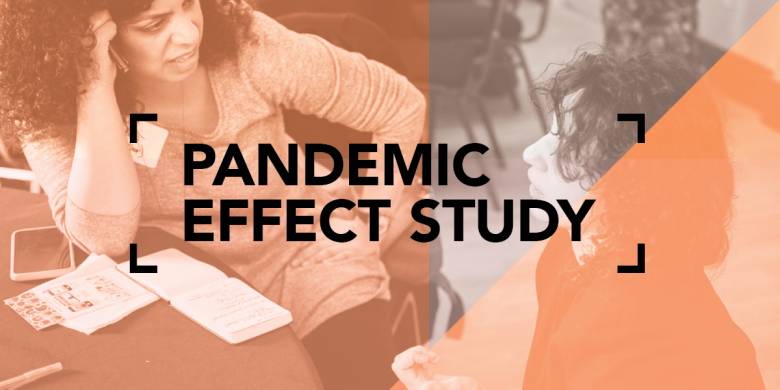
In efforts to understand and recover from the impacts of COVID-19, we can now turn for guidance to a new study partly involving OCAD University that details the particular toll being taken on female techpreneurs, revealing their top three concerns: business instability, burnout and social distress.
Pandemic Effect: Exploring COVID-19’s Impact on Women/Womxn-led Digital Media Businesses In Ontario is based on the results of an online survey completed by 28 Ontario women between July and November 2020 who run small businesses offering digital media services, content creation, platforms and/or products. They represent about 11 per cent of the approximately 250 women-owned digital media companies in Ontario, out of a total of 929.
The study was funded by the Ontario Creates Business Improvement Program and spearheaded by the CFC Media Lab’s Fifth Wave Initiative, which supports women entrepreneurs in Southern Ontario. The research design and execution partners were government policy advisor Nordicity, and OCAD U’s Super Ordinary Lab, which explores meaningful technological innovation using foresight techniques and qualitative research methodologies. Lab director and Faculty of Design professor Suzanne Stein led a team in developing the research project’s online survey.
The experiences and insights these women shared reflect the gaps, challenges and opportunities that characterize the province’s digital media ecosystem under duress from COVID-19. Among the notable findings is that 68 per cent said the pandemic had slowed or halted their ability to do business.
Regarding their companies’ fiscal health, 29 per cent said they may need to lay people off or were in dire straits; however, the good news was that for half, nothing has changed, while 21 per cent reported being ahead of the game.
The participants’ top three concerns about COVID-19’s impact on their businesses were: a loss of business development opportunities; contract cancellations or delays; and being unable to perform their job.
Trends and drivers
The survey data also revealed the top concerns the women had about the general impacts of COVID-19 today, and in three years from now. These concerns were categorized into “trends and drivers”, or types of disruptive forces, and were placed into one of six overarching categories: social, technological, economic, environmental, political values. Of greatest concern in 2020 was: 1) stress and mental health; 2) physical distancing; and 3) loss of work/life boundaries. One and three stayed the same in their projections for 2023, while they forecasted their second-biggest concern to be anti-racism awareness.
How to turn the corner
As part of the study, 10 of the respondents participated in a workshop in late October where they talked about how COVID-19 has affected their businesses. They also identified several ways to recover and thrive in four key areas: focusing on local opportunities, adjusting their operations, adapting to the more dynamic digital business space, and rethinking human resources.
The dozens of ideas that emerged revealed a consensus around the need to collaborate strategically with partners, foster community and explore new business models. At a second workshop a few weeks later, they discussed their business challenges further and identified ways to deal with their top problem at that point, burnout.
“Pandemic Effects” features a chart with the focus group’s high-impact, high-effort strategies for business resiliency during COVID-19. The insights are organized into six areas: business model and planning; work/life balance; space to support employees; value chain. An appendix features the full list of strategies generated by the participants.
The report concludes: “Collective sense-making in this time of shock should help to reduce the impact and foster new partners and a resilient network of entrepreneurs.”